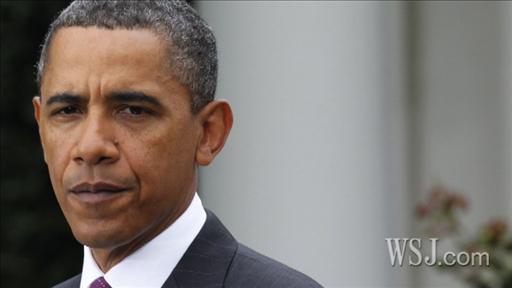GOP, Tea Party Unity Spells Defeat For Obama
Republicans should be grateful tea partiers did not run as third-party candidates and split the antistatist vote.
By HALEY BARBOUR
WSJ.com
Christine O'Donnell's upset victory in last week's Delaware GOP Senate primary has generated a lot of talk in the media about where the tea party and the GOP are headed.
Tea party voters have been incited to political action by the policies of the Obama administration and the Pelosi-Reid Congress. These include a heretofore unimaginable federal spending spree, a failed package of stimulus programs, a government takeover of our health-care system, and the Democrats' insistence on raising taxes, particularly on job creators, even though job creation is our country's greatest need.
Tea party voters are not only motivated by the effect these terrible policies are having on them—they are worried about America's future. They fear that their children and grandchildren won't inherit the same country they inherited from their parents and grandparents. What they know with certainty is that future generations will be saddled with paying back the trillions in debt that the Obama administration and Congress are running up with so little positive result.
Replace "tea party" with "Republican" in every instance above, and each description would remain totally accurate. On the issues foremost in voters' minds—the economy, jobs, spending, taxes, debt and deficits—the overwhelming majority of tea party voters and Republican voters are in strong agreement.
![[Teaparty_Rally]](../images/OB-JY905_Teapar_D_20100913120806.jpg)
Members of the Tea Party
That is why it was tremendously important for Republican prospects in the 2010 elections that tea partiers did not run as independents or third-party candidates. To do so would have split the votes of those who know the Obama-Pelosi-Reid policies don't work and are hurting our economy.
Every Republican should be pleased that these tea party candidates chose to run in our primaries. In the vast majority of cases, their participation was welcomed, even cultivated, by GOP leaders—and rightly so.
In the course of our Republican primaries, tea party candidates prevailed on several occasions, sometimes defeating the so-called establishment candidate, as in Delaware. Some losing candidates and their supporters want to cry foul, and they are being egged on by a left wing eager to give its agenda a second chance by splitting the vote of those opposed to the Obama agenda. Without dividing the antistatist coalition, the left can't win in November.
Republican and tea party voters united means Mr. Obama defeated. As a former Republican National Committee (RNC) chairman and the current chairman of the Republican Governors' Association (RGA), I urge Republicans not to help the left wing split our vote.
When the Republican voters of a state choose a party nominee in an open process like a primary, we Republican leaders must support the nominee. During my tenures as chairman of the RNC and RGA, neither organization endorsed candidates in primaries. That's because the party's role is to abide by the decisions of the Republican primary voters. We have no right whatsoever to substitute our will or judgment for that of the voters.
Sen. Lisa Murkowski lost the GOP primary in Alaska to Joe Miller. Now she's launched a write-in campaign to get re-elected. There is no excuse for this campaign, and Senate Minority Leader Mitch McConnell was right to demand her resignation from the GOP leadership.
We don't have loyalty oaths in our party, so rank-and-file GOP voters aren't obligated to vote for the primary winner. We hope they will. But it is an obligation of party leaders and candidates who participate in our primaries to accept their outcomes.
The good news is that Republicans and tea party voters have been banding together for almost a year. Last fall when Chris Christie, the more moderate candidate, won the GOP primary for governor in New Jersey, conservative Republicans and tea party activists united with Mr. Christie's supporters to help him defeat Democrat John Corzine. In Virginia, moderate Republicans overwhelmingly supported conservative Bob McDonnell in his winning race for governor of Virginia.
Both governors have been highly successful and have focused on the critical issues that unite Republicans, tea party voters, independents and conservative Democrats. The issues include creating jobs instead of more massive government, controlling spending and not raising taxes, and delaying and then repealing ObamaCare.
I expect our coalition to continue working well together this year. Republicans and our allies know the stakes in the 2010 elections are too high to do otherwise.
Mr. Barbour is governor of Mississippi and chairman of the Republican
Governors Association

